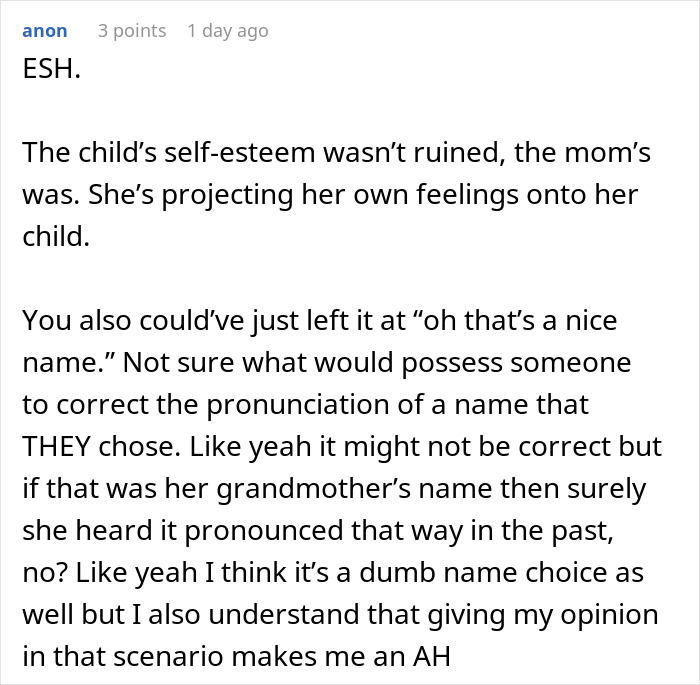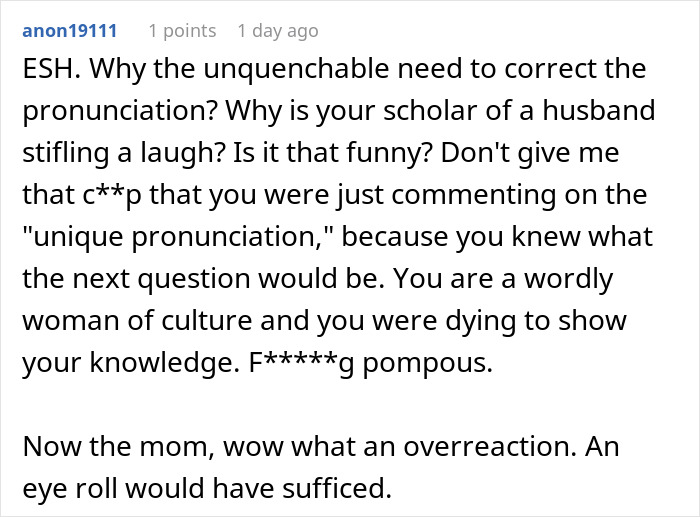“What’s in a name?” Shakespeare asked in Romeo and Juliet. “That which we call a rose by any other name would smell just as sweet.” Well, maybe that works for roses, but not so much for people. Some parents can go a little overboard in picking a name that’s a tad bit “too special.”
This woman chose the name Gráinne for her daughter in honor of her great grandmother. And while that’s incredibly sweet, she didn’t exactly know the right pronunciation. So, when a stranger did tell her, she did what any well-adjusted adult would do: got embarrassed and started berating them.
The pronunciation of a child’s Irish name got two strangers into an awkward fight

Image credits: oneinchpunchphotos / envatoelements (not the actual photo)
The mother got mad at a stranger for correcting her daughter’s name pronunciation, claiming they “ruined her life”
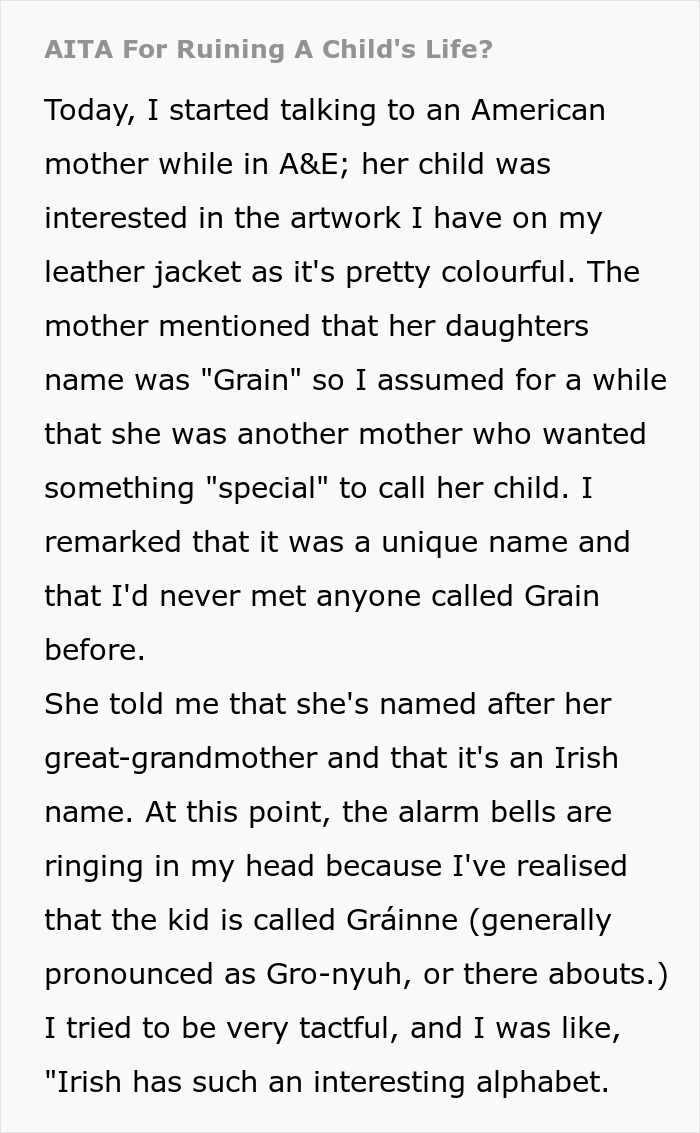
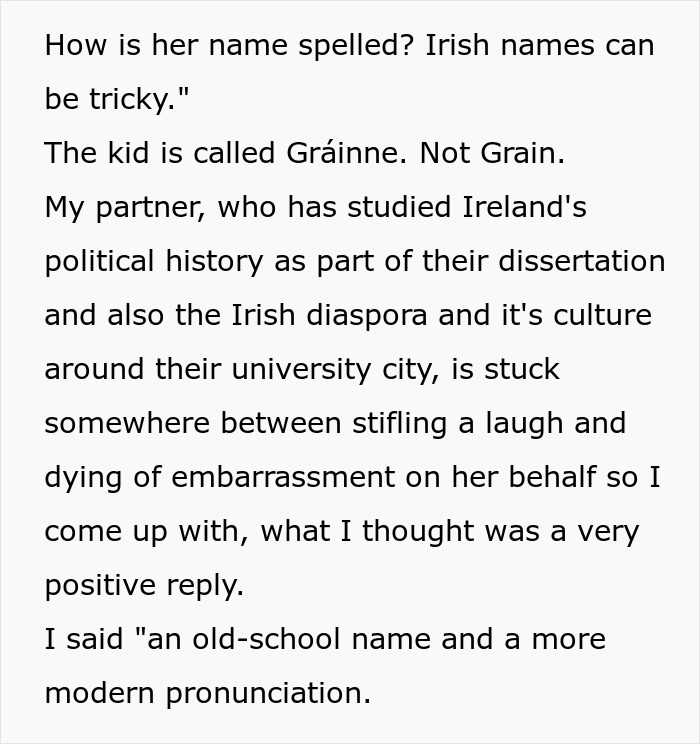
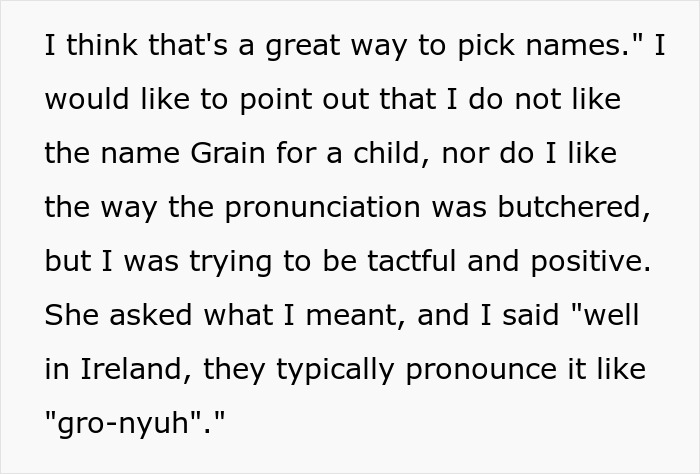
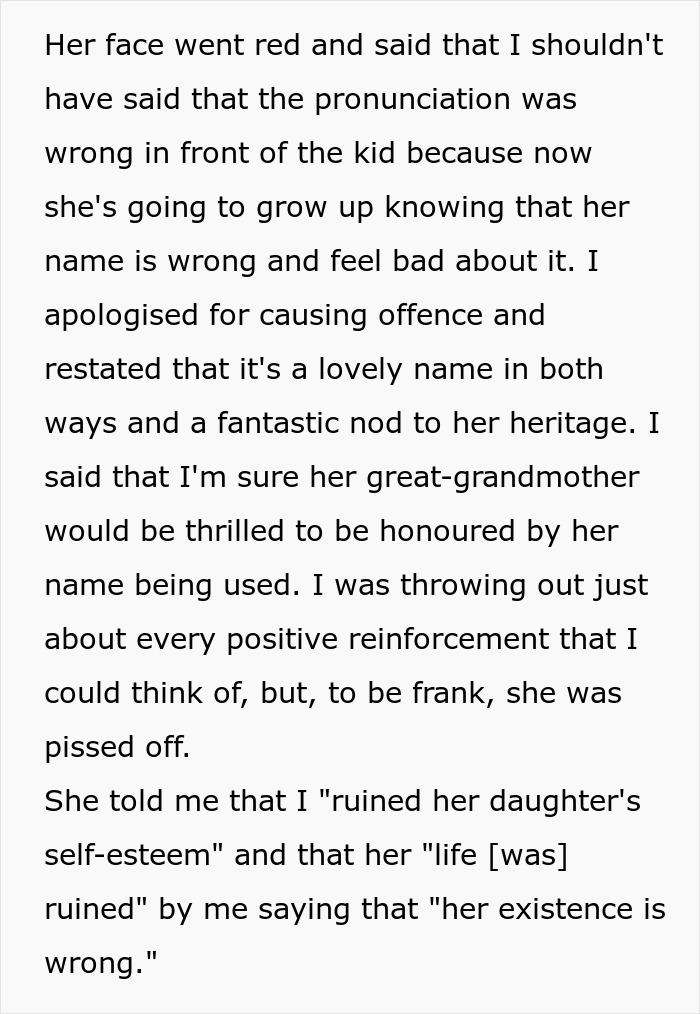
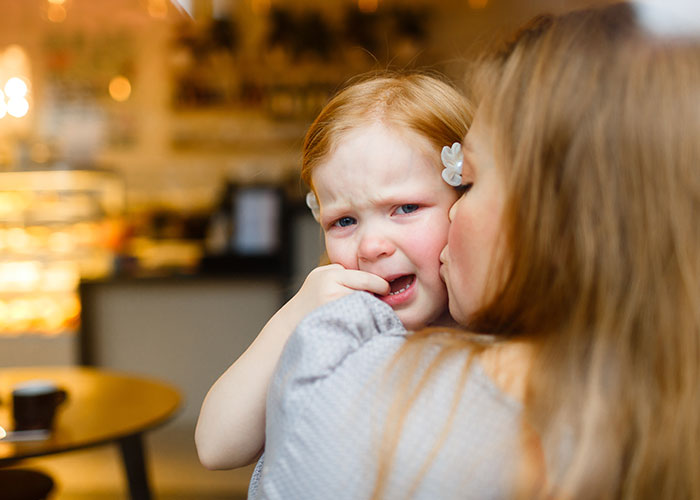
Image credits: Pressmaster / envatoelements (not the actual photo)
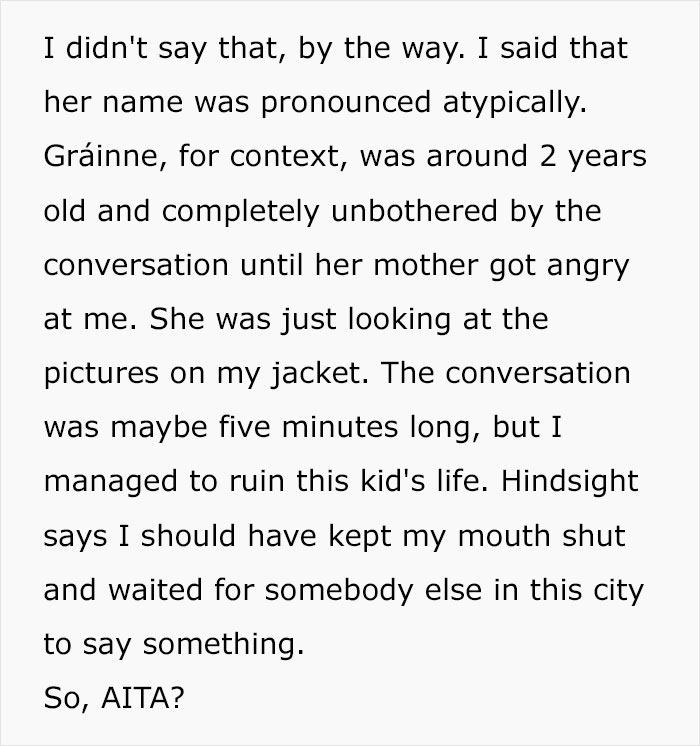

Image credits: punkfence
An unusual name can have a negative impact on a person’s life

Image credits: cottonbro studio / pexels (not the actual photo)
Unique names may sound nice, but they don’t always make the named person’s life easier. A 2012 study revealed that people trust strangers more if their names are easier to pronounce, even if they sound unusual to them. The lead author of the study Eryn Newman said: “In each experiment, strangers with easy-to-pronounce names were judged as being more familiar, more trustworthy and safer.”
What’s more, the pronunciation of a name also had a role in whether people viewed others as trustworthy. “People actually thought claims attributed to easy-to-pronounce names were more likely to be true,” Newman noted. Basically, people trust an Adrian Babashenko more than a Czeslaw Ratynska.
But naming troubles don’t end here. Even if a kid’s name is easy to pronounce, its spelling can cause some issues too. Psychologist Jean Twenge claims that differently-spelled names are to blame for declining spelling and reading capabilities among U.S. children. “You have the child named Jennifer spelled with a ‘G’ — her teacher says ‘Are you sure your name is spelled that way?’ That can be incredibly hard on a person’s confidence,” she wrote.
In some cases, an unusual or weirdly-spelled name can negatively affect a person’s career. One study found that recruiters favored those whose names were easy to spell over such as the poor Gráinne. “People with easier-to-pronounce surnames occupy higher status positions in law firms,” the authors stated.
On the other hand, having a unique name can do wonders for a person’s self-esteem and creative thinking. There’s also almost a guarantee that people will remember you more easily. “[They’re] often easier for people to remember, and so they are likely to remember your name when they meet you for the first time (or at least remember that you had an unusual name),” Arthur Markman, PhD, told Yahoo Health.
The confusion around Irish names comes from their unique spelling
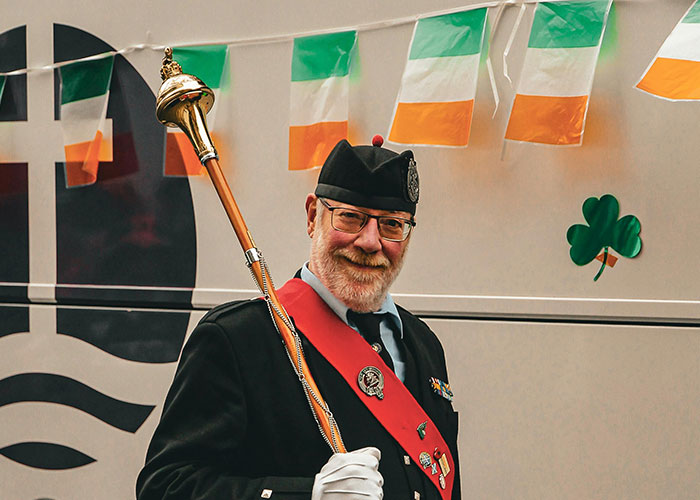
Image credits: Nati Elena / pexels (not the actual photo)
Irish people speak English, but why do Irish names seem so weird to us? That’s because, even if they’re spelled with letters from the Latin alphabet as English, they mean different sounds and have different pronunciations.
The apostrophe above the “Á” means that it should be pronounced “long.” The symbol is a “síneadh fada” (literally meaning “a long stretch”) and signals to the speaker that the vowel is long. That’s how “Gráinne” becomes “Grawn-ya.” Sometimes, the name is spelled “Grania.”
Irish language and culture expert Darach Ó Séaghdha has two possible explanations as to why the spelling and pronunciation of Irish names are so different. “Often, those names were popular before people knew how to spell,” he told CCN Travel. “A relatively old name like Meadhbh would have different versions because people spell it different ways.”
Another is the modernization of the Irish alphabet. “There were different stages of spelling normalization in the Irish language. In the 1950s, they decided to kind of modernize the alphabet,” Ó Séaghdha explained. That’s when anglicized spellings took off.
It’s probably good to know how a name is spelled before giving it to your child. There’s nothing wrong with using Irish names, especially if they belonged to family members in the past. Still, a kid may need to carry that name for a long time before they’re able to change it.
The author clarified that they weren’t looking to humiliate the mother or the daughter
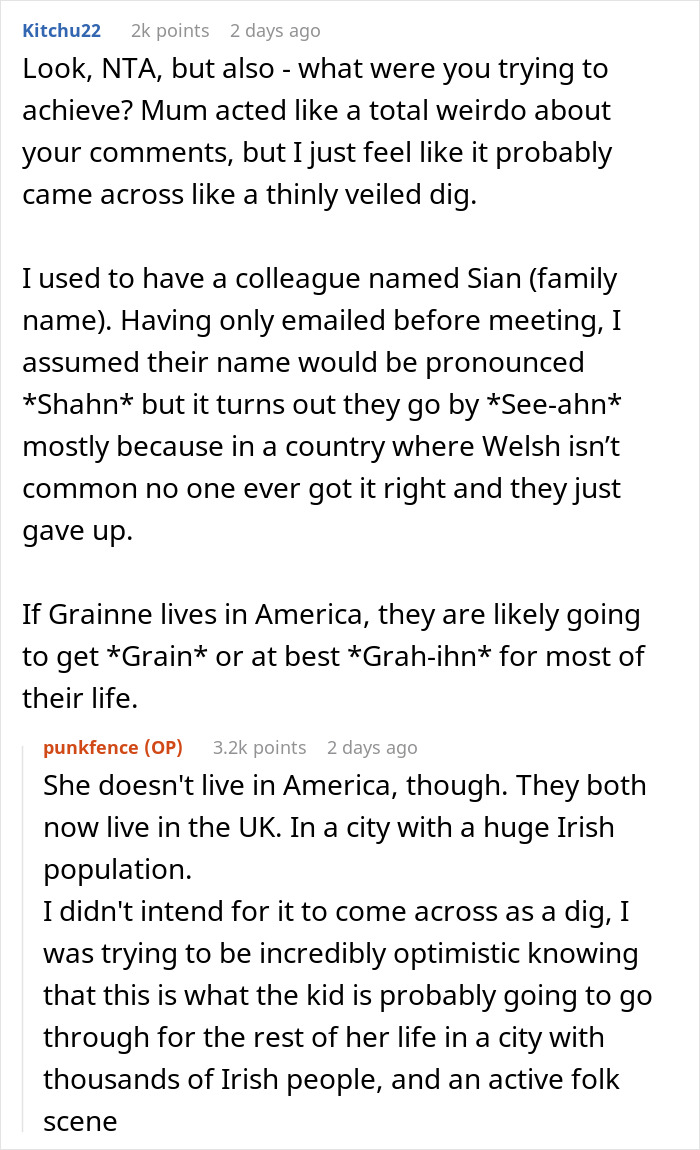
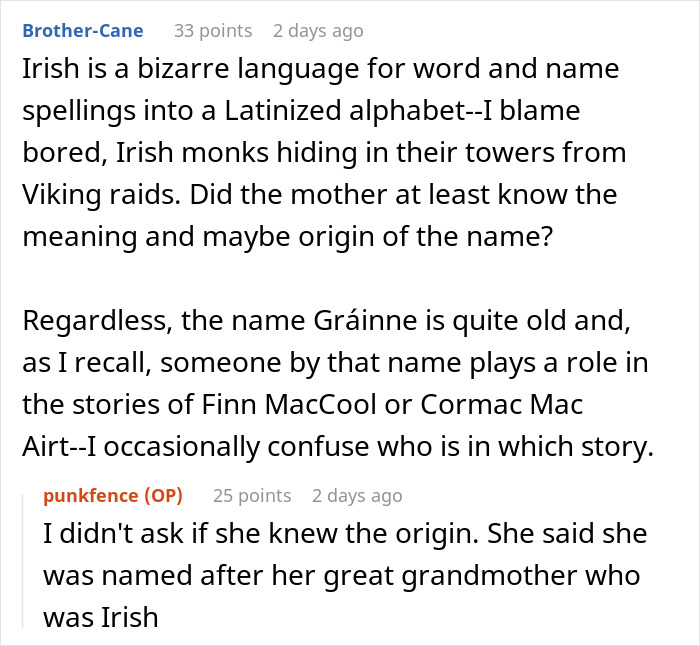
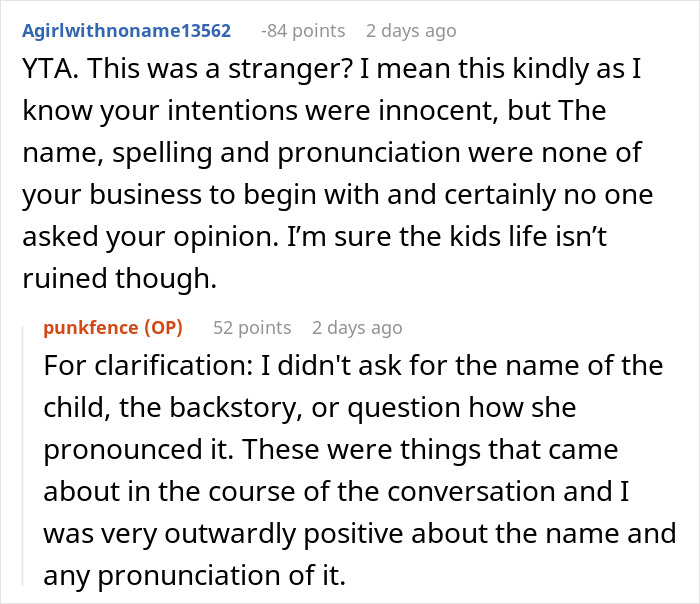
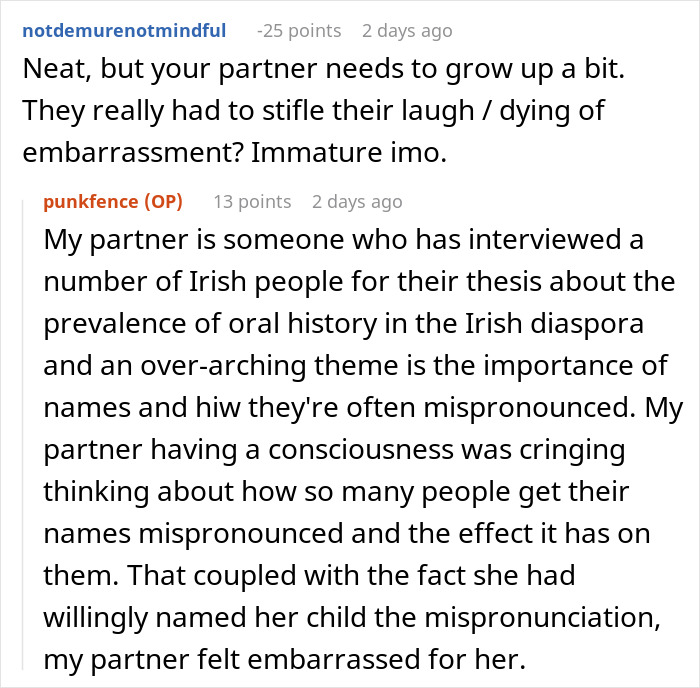
Some people thought it was the mother’s fault for not educating herself
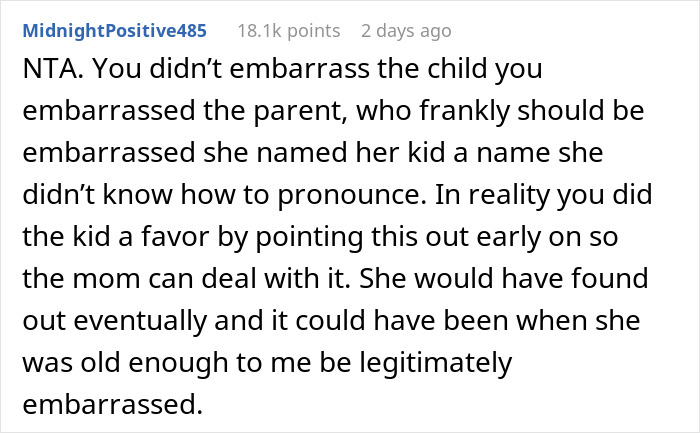




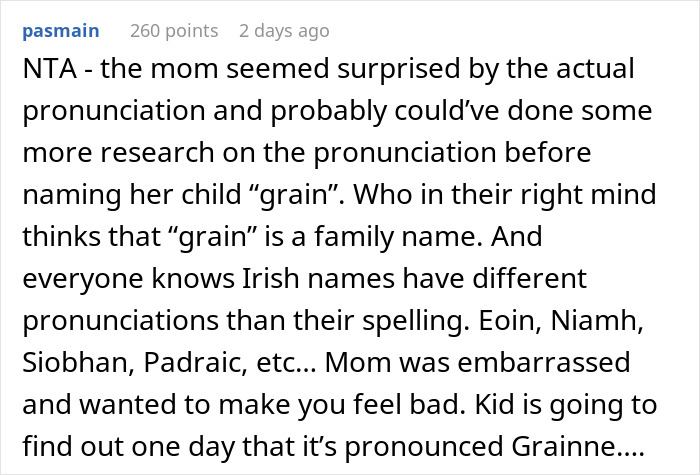

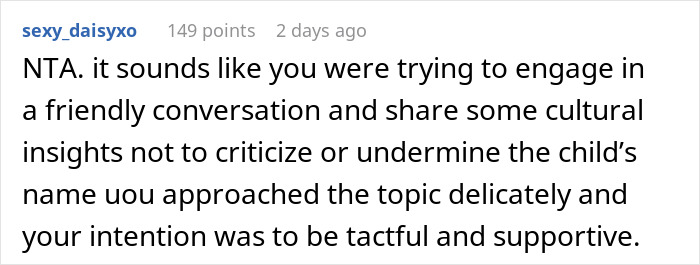
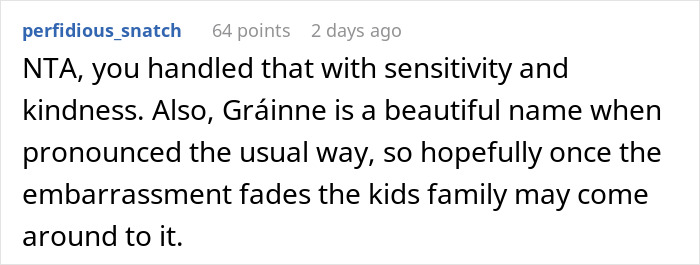

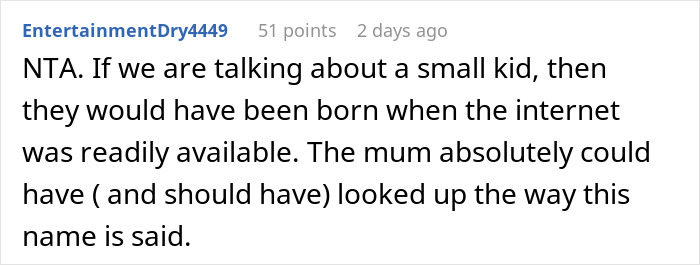
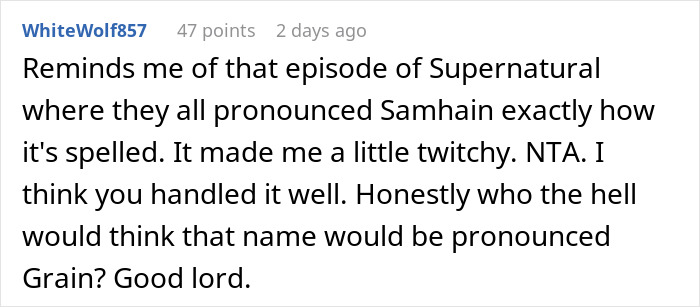
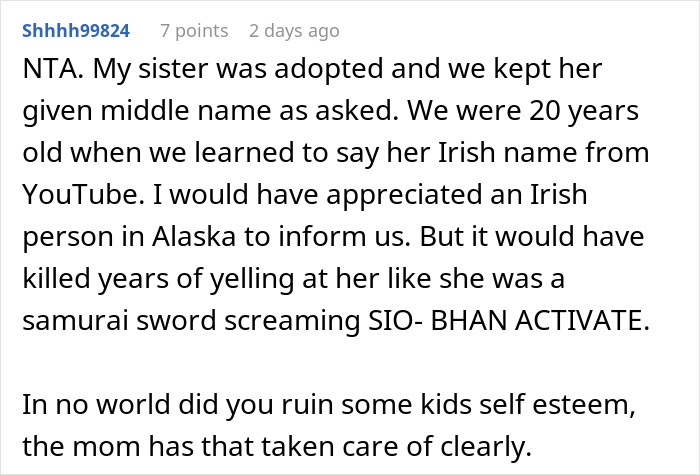

Others claimed OP was being a jerk, questioning what they were trying to achieve here
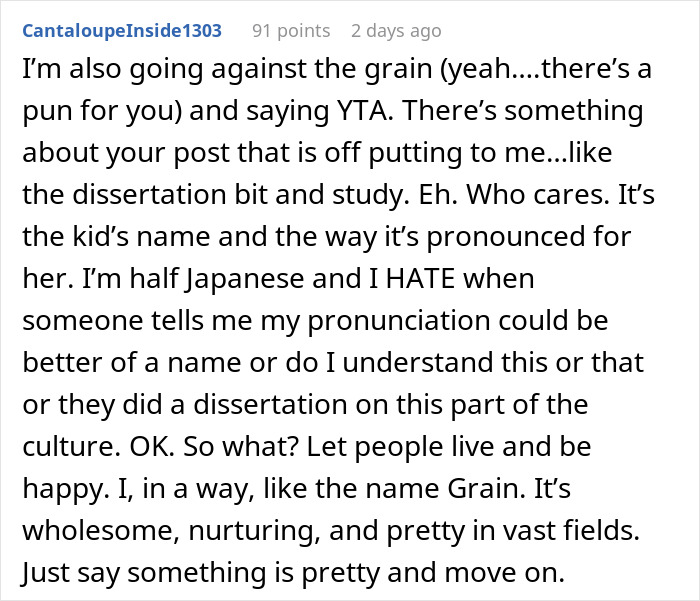

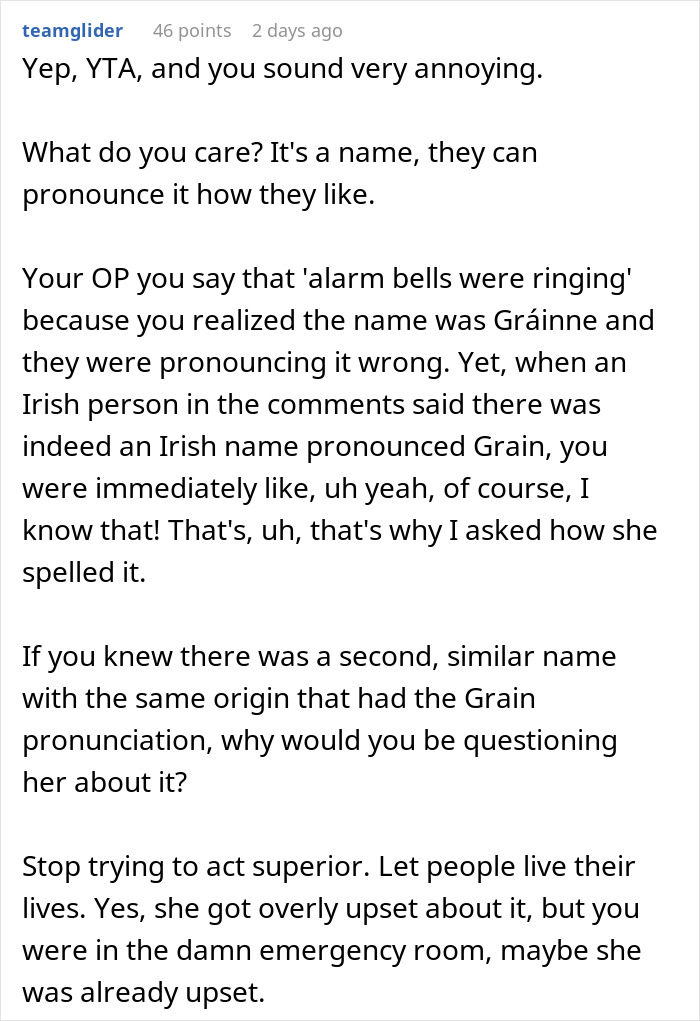

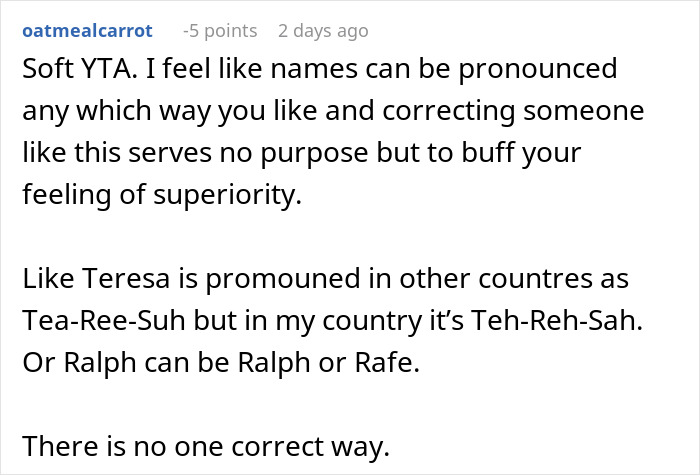
Other netizens chastised both the author and the mother
